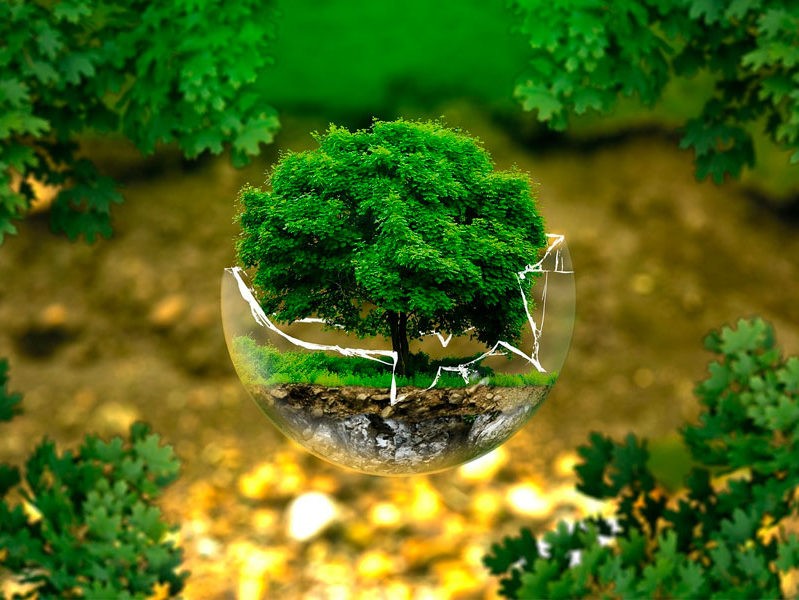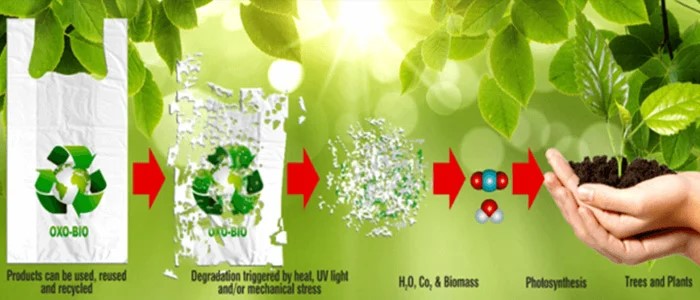What are Biodegradable Plant-Based Plastics?
Biodegradable plant-based plastics, also known as bioplastics, are derived from renewable resources such as corn starch, sugarcane, potato starch, or other plant materials. These plastics are designed to break down naturally through biological processes, such as microbial decomposition. Unlike traditional plastics, biodegradable plant-based plastics offer a more environmentally friendly option because they degrade into harmless substances, reducing their impact on the environment.

Figure 1. Biodegradable Plant-Based Plastics
Figure 1 shows Plant-based plastics, also known as bio-based plastics, are derived from various plant materials like corn, starch, sugarcane, seaweed, bamboo fibre, and more. These innovative materials offer sustainable alternatives to traditional petroleum-based plastics. They can be produced using agricultural waste or scraps, reducing our reliance on fossil fuels, which currently consume around 8% of the world's oil resources. By utilizing plant resources, bio-based plastics contribute to a more eco-friendly and renewable approach to plastic production, helping to mitigate the environmental impact of plastic pollution.[1]
Biodegradable plant-based plastics, also known as bioplastics, are a type of plastic made from renewable plant sources. Unlike traditional petroleum-based plastics, which are derived from non-renewable fossil fuels, biodegradable plant-based plastics are produced using materials such as corn starch, sugarcane, potato starch, or other plant-derived polymers.
The process of making biodegradable plant-based plastics involves extracting starch or sugars from plants and then converting them into biopolymers through various methods, including fermentation and chemical processes. These biopolymers can be moulded and used to create a wide range of products, just like conventional plastics.
The key advantage of biodegradable plant-based plastics is their ability to break down naturally over time through biological processes. Microorganisms in the environment can digest these plastics, breaking them down into harmless substances like water, carbon dioxide, and organic matter. This natural degradation process typically occurs at a faster rate compared to traditional plastics, reducing their impact on the environment and alleviating plastic pollution.
It is essential to note that not all biodegradable plant-based plastics degrade in the same way or under all conditions. Some may require specific composting facilities to decompose effectively, while others may degrade in natural environments.
Overall, biodegradable plant-based plastics offer a more sustainable alternative to traditional plastics, as they are made from renewable resources and can significantly reduce the environmental impact associated with plastic waste. By adopting biodegradable plant-based plastics, we can move towards a more eco-friendly and responsible approach to plastic production and consumption.
References:
- https://tipa-corp.com/blog/what-is-plant-based-plastic/
Cite this article:
Janani R (2023),Biodegradable Plant-Based Plastics: Reducing Plastic Pollution, Anatechmaz,pp 2





